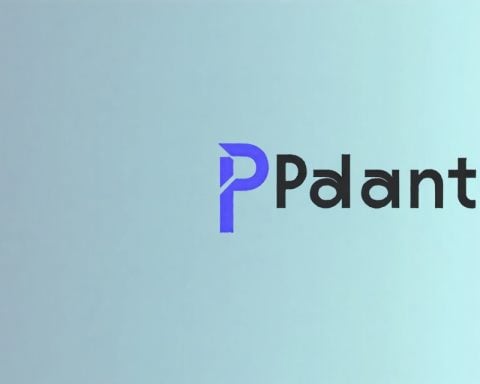- Microsoft’s Majorana 1 chip represents a significant leap in quantum computing, leveraging a new state of matter.
- The chip utilizes a topological superconductor, promising unprecedented fault tolerance for quantum computers.
- Majorana fermions, theorized in the 1930s, are key to reducing error rates and enhancing chip performance.
- The quantum bits, or qubits, operate in superposition, allowing them to handle vast calculations beyond classical binary systems.
- Microsoft challenges the notion that more qubits are better, focusing instead on fewer, more efficient qubits.
- Potential applications of quantum computing include breakthroughs in drug discovery and secure encryption.
- While breakthrough impacts are not immediate, Microsoft predicts practical advancements within several years.
- This innovation underscores Microsoft’s leading role in the evolving quantum computing landscape.
In a world dazzled by technological wonders, Microsoft has taken a monumental step forward with its introduction of the Majorana 1 chip. This breakthrough unleashes the potential of quantum computing by harnessing a new state of matter. Crafted meticulously over nearly twenty years, this chip promises to reimagine what’s possible in computing.
At the heart of the Majorana 1 is a topological superconductor—a mysterious material that defies traditional classification as solid, liquid, or gas. It forms the backbone of what could be the most fault-tolerant quantum computers ever constructed. The chip owes its intriguing capabilities to the elusive Majorana fermion, a subatomic particle conceived theoretically in the 1930s, now materialized in Microsoft’s labs to dramatically cut down error rates that have long bedeviled quantum systems.
Why qubits, you ask? These quantum bits don’t just abide by the binary norm of 0s and 1s. They dance in a superposition, simultaneously embodying multiple states and thereby unleashing the power to tackle calculations at scales unimaginable to today’s binary computers.
Imagine unraveling the intricate tapestries of complex problems—from drug discovery to uncrackable encryption—at the flick of a switch. While companies like IBM and Google vie to amass more qubits, Microsoft asserts that fewer, more efficient qubits could be the key to practical quantum computing.
Yet, the ripple of change won’t occur overnight. Though the company foresees a viable future in “years, not decades,” pioneering the physics behind Majorana 1 has been a leap into the unknown.
This innovation positions Microsoft at the vanguard of a digital renaissance, an enticing reminder that the ultimate potential of quantum computing is still a spinning coin, holding a universe of possibilities within its grasp.
The Game-Changing Impact of Microsoft’s Majorana 1 Chip in Quantum Computing
Overview
The introduction of Microsoft’s Majorana 1 chip is not just a technological advancement but a paradigm shift in the world of quantum computing. This revolutionary technology utilizes a new state of matter through topological superconductors and the elusive Majorana fermion to promise a future where error rates in quantum computations could be negligible. However, what’s behind this monumental breakthrough, and what can we expect from it in the near and long-term future?
How-To Steps & Life Hacks
Leveraging Quantum Computing for Business
1. Identify Applicable Problems: Start by identifying the complex problems within your organization that require enormous computational power. Quantum computing is particularly suited for optimization, cryptography, and machine learning.
2. Capacity Building: Invest in building a knowledgeable team that understands quantum physics fundamentals. Promote training programs or partnerships with academic institutions.
3. Pilot Programs: Engage in pilot projects using platforms like Microsoft’s Azure Quantum to test the possibilities of quantum computing for your specific needs.
4. Hybrid Solutions: Integrate quantum solutions with classical computing for best results until quantum becomes universally feasible.
Real-World Use Cases
The potential real-world applications are breathtaking. The pharmaceutical industry could see immense benefits in drug discovery processes, thanks to the increased capability in molecular modeling. Furthermore, industries relying on cryptography, such as banking, could develop unbreachable security protocols.
For example, global logistics companies could optimize route planning in real-time, drastically reducing operational costs and enhancing efficiency.
Market Forecasts & Industry Trends
The quantum computing market is projected to grow from approximately $500 million in 2023 to $8 billion by 2030, according to various market studies. Companies leading in this space, like IBM, Google, and Microsoft, are heavily investing in research and development, which bodes well for advancements and commercialization.
Reviews & Comparisons
While IBM and Google are increasing the qubit count in their quantum computers, Microsoft’s approach revolves around fewer, more reliable qubits. Each strategy has its pros and cons: more qubits can solve more complex problems, but Microsoft’s approach might mean fewer errors and better performance for specific applications.
Controversies & Limitations
Despite its potential, there are significant challenges. The ethical implications of quantum computing, particularly relating to cryptography, have raised concerns. Moreover, scaling the technology from laboratory environments to commercial application remains a formidable task.
Features, Specs & Pricing
Specific details about the technical specifications of the Majorana 1 chip remain proprietary. As for pricing, quantum computing services are generally accessible through cloud-based solutions, like Microsoft’s Azure Quantum, offered on a pay-as-you-go model.
Security & Sustainability
The Majorana 1 aims to enhance computational security through reduced error rates, translating to more robust cryptographic solutions. However, the environmental sustainability of quantum computers is still under scrutiny, given the energy demands of maintaining quantum coherence.
Insights & Predictions
In the realm of quantum computing, Microsoft’s Majorana 1 chip sets a new benchmark for innovation. Experts predict that as the technology matures, it could solve longstanding challenges in various fields, making tasks previously deemed impossible, achievable.
Tutorials & Compatibility
Microsoft Azure Quantum provides resources and tools that can integrate seamlessly with existing IT infrastructure, making it easier for businesses to experiment with quantum solutions.
Pros & Cons Overview
Pros:
– Potential for drastically reduced error rates
– Significant computational speed improvements
– Capable of solving complex problems more efficiently
Cons:
– High complexity in practical implementation
– Ethical and security concerns
– Current high cost and resource demand
Actionable Recommendations
1. Stay Updated: Keep abreast of developments in quantum computing through credible sources and industry reports.
2. Invest in Skill Development: Train your workforce in quantum computing fundamentals to stay competitive.
3. Explore Quantum Cloud Solutions: Utilize platforms like Azure Quantum to explore the potential of quantum computing in your organization.
For further exploration on Microsoft’s foray into quantum technology, visit Mirosoft.
By understanding and leveraging the opportunities within quantum computing, businesses and industries can position themselves at the forefront of the next technological revolution.













